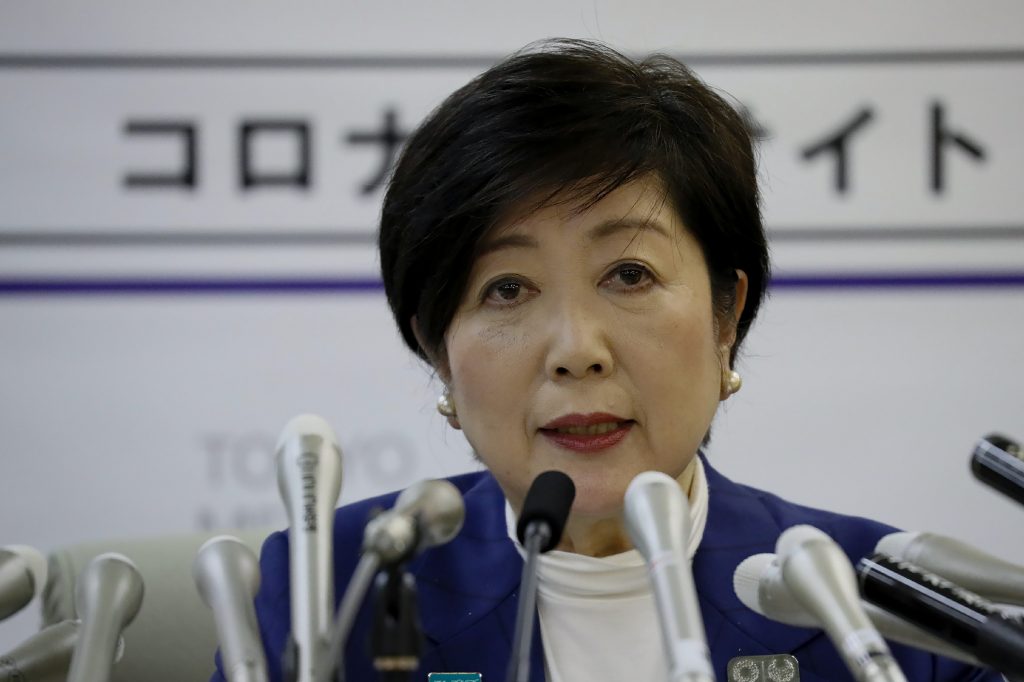
- ARAB NEWS
- 02 Jul 2025

TOKYO: Local governments in Japan are divided over whether business suspension requests should be made again following a recent resurgence in novel coronavirus infections in many areas including Tokyo.
When the central government’s state of emergency over the pandemic was in place between April and May, a wide range of industries across the country were asked to suspend operations.
But after the lifting of the state of emergency, a key challenge is to balance efforts to prevent infections with measures to resuscitate economic activities.
“The medical system could be affected if a similar thing happens,” an official of the prefectural government of Kagoshima said, showing concern over the possibility of an infection cluster occurring again after more than 100 people related to an entertainment pub in the southwestern prefecture have tested positive for the virus.
The Kagoshima government issued a two-week business suspension request from July 8 to nightlife establishments with hospitality services under Article 24 of the country’s special measures law on the fight against the coronavirus.
The prefectural government of Saitama, eastern Japan, on July 8 called on residents to refrain from using eateries whose coronavirus countermeasures are insufficient, in the wake of an increase in infection cases there.
As many infection cases believed to be linked to nightlife districts were found later, however, the prefecture requested cabarets and other facilities that had failed to take measures under the industry’s antivirus guidelines to suspend operations from July 13 last week.
“We want industries seeing cluster infections or a spread in coronavirus cases to take measures,” Saitama Governor Motohiro Ono said, adding, “We will strongly support the voluntary implementation of infection prevention measures.”
On July 15, the Tokyo metropolitan government raised its coronavirus alert to the highest level. Tokyo Governor Yuriko Koike asked business operators afresh to thoroughly take necessary measures against infection but she stopped short of issuing a business suspension request, as such a move will cause widespread impacts.
Also, the metropolitan government apparently sees it difficult to provide cooperation money again to businesses that would suspend operations, due to fiscal constrains after it paid up to 1 million yen in such money to small businesses under its suspension requests earlier this year.
Meanwhile, the office of Toshima Ward in Tokyo plans to independently issue a business suspension request. If, for example, cluster infections happen at a host club in the ward and it halts operations for at least 10 days following a request from the ward office, the facility will be paid 500,000 yen in cooperation money.
Article 24 of the special measures law stipulates that business suspension requests be made by prefectural governors, not by municipal mayors. Related guidelines compiled by the central government call for suspension requests to be made to industries, not to individual stores.
Toshima Ward decided to issue its own business suspension request if needed, believing that even a request that is not backed by law would have intended effects. In a message to residents, Yukio Takano, mayor of the ward, said, “We need to find infected people early and implement necessary countermeasures proactively.”
The metropolitan government has sounded ready to offer cooperation and pledged to extend financial assistance for the efforts by the Toshima Ward office.
On the cooperation between the Tokyo metropolitan government and the Toshima Ward office, Shinji Hirai, governor of Tottori Prefecture, western Japan, said, “I think they are trying to do something they cannot do under the special measures law,” noting that the legislation is inconvenient.
Following those developments, economic revitalization minister Yasutoshi Nishimura, who is in charge of the central government’s measures against the virus, showed the view on July 17 that business suspension requests can be made to individual facilities under Article 24 of the law if their infection prevention measures are insufficient.
Koike has proposed that a provision authorizing penalties on business operators that do not follow suspension requests be added to the special law. Hirofumi Yoshimura, governor of the western prefecture of Osaka, has called for a revision of the law to strengthen the authority of prefectural governors.
JIJI Press